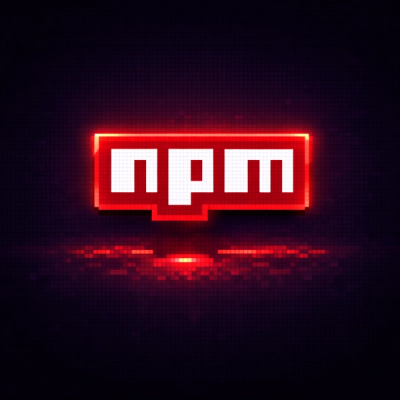
Research
SANDWORM_MODE: Shai-Hulud-Style npm Worm Hijacks CI Workflows and Poisons AI Toolchains
An emerging npm supply chain attack that infects repos, steals CI secrets, and targets developer AI toolchains for further compromise.
quart-compress
Advanced tools
Quart-Compress allows you to easily compress your Quart application's responses with gzip.
The preferred solution is to have a server (like Nginx) automatically compress the static files for you. If you don't have that option Quart-Compress will solve the problem for you.
Quart-Compress both adds the various headers required for a compressed response and gzips the response data. This makes serving gzip compressed static files extremely easy.
Internally, every time a request is made the extension will check if it matches one of the compressible MIME types and will automatically attach the appropriate headers.
If you use pip then installation is simply:
$ pip install quart-compress
or, if you want the latest github version:
$ pip install git+git://github.com/AceFire6/quart-compress.git
Quart-Compress is incredibly simple to use. In order to start gzip'ing your Quart application's assets, the first thing to do is let Quart-Compress know about your quart.Quart application object.
from quart import Quart
from quart_compress import Compress
app = Quart(__name__)
Compress(app)
In many cases, however, one cannot expect a Quart instance to be ready at import time, and a common pattern is to return a Quart instance from within a function only after other configuration details have been taken care of. In these cases, Quart-Compress provides a simple function, quart_compress.Compress.init_app, which takes your application as an argument.
from quart import Quart
from quart_compress import Compress
compress = Compress()
def start_app():
app = Quart(__name__)
compress.init_app(app)
return app
In terms of automatically compressing your assets using gzip, passing your quart.Quart object to the quart_compress.Compress object is all that needs to be done.
Within your Quart application's settings you can provide the following settings to control the behavior of Quart-Compress. None of the settings are required.
| Option | Description | Default |
|---|---|---|
COMPRESS_MIMETYPES | Set the list of mimetypes to compress here. | ['text/html','text/css','text/xml','application/json','application/javascript'] |
COMPRESS_LEVEL | Specifies the gzip compression level. | 6 |
COMPRESS_MIN_SIZE | Specifies the minimum file size threshold for compressing files. | 500 |
COMPRESS_CACHE_KEY | Specifies the cache key method for lookup/storage of response data. | None |
COMPRESS_CACHE_BACKEND | Specified the backend for storing the cached response data. | None |
COMPRESS_REGISTER | Specifies if compression should be automatically registered. | True |
FAQs
Compress responses in your Quart app with gzip or brotli.
We found that quart-compress demonstrated a healthy version release cadence and project activity because the last version was released less than a year ago. It has 1 open source maintainer collaborating on the project.
Did you know?

Socket for GitHub automatically highlights issues in each pull request and monitors the health of all your open source dependencies. Discover the contents of your packages and block harmful activity before you install or update your dependencies.

Research
An emerging npm supply chain attack that infects repos, steals CI secrets, and targets developer AI toolchains for further compromise.

Company News
Socket is proud to join the OpenJS Foundation as a Silver Member, deepening our commitment to the long-term health and security of the JavaScript ecosystem.

Security News
npm now links to Socket's security analysis on every package page. Here's what you'll find when you click through.